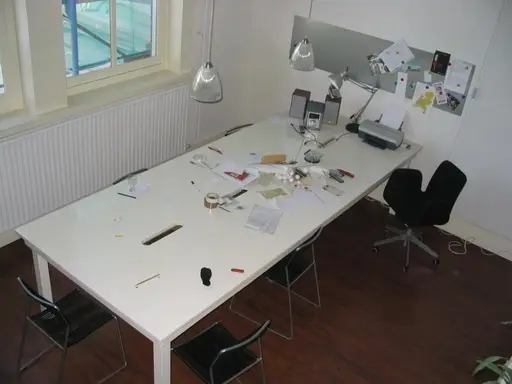Övül Durmuşoğlu
curator, Istanbul and Vienna
Övül Durmuşoğlu (born 1978) is a curator and critic who completed a BA in Translating and Interpreting at Bogazici University, Istanbul and an MFA in the theory branch of Visual Arts and Visual Communication Design at Sabanci University, Istanbul. Sh
Övül Durmuşoğlu (born 1978) is a curator and critic who completed a BA in Translating and Interpreting at Bogazici University, Istanbul and an MFA in the theory branch of Visual Arts and Visual Communication Design at Sabanci University, Istanbul. She also participated in the Critical Studies program at Malmö Art Academy, Malmö. In addition to contributing to local art and culture magazines such as Cogito, Kaos GL, and icon, Durmuşoğlu has been working with Altyazi Monthly Cinema Magazine (Istanbul) since its foundation. She has also given public talks on feminism, performance art, and pornography in Istanbul and Ankara. Recent publications include: Paletten (Gothenburg); n.paradoxa (London); Muhtelif (Istanbul/Berlin); and Kulturrise (Vienna). Recent curatorial projects include: Data Recovery, GAMeC, Bergamo, 2007; Nightcomers, 10th International Istanbul Biënnal, Istanbul, 2007; EXOCiTi, Istanbul, 2006; and Ittihad Sigorta, Istanbul, 2005. In 2007, she was awarded the 4th edition of the Premio Lorenzo Bonaldi Young Curators Award in Italy. Durmuşoğlu lives and works in Istanbul and Vienna.During her RIR stay, Durmuşoğlu considered questions such as: how can the postsecular discussion in terms of contemporary art be reflected upon? May contemporary art be an agonistic zone for the clashes and polarizations between secularist and religious groups? Can we still pose that most crucial question, “can we live together?,” urging people to create a common ground for thinking where the methodologies of social science do not work anymore?Art schools or academies where people have chosen to become artists may be claimed to be interesting “case studies” in searching after the above stated questions. In the Netherlands, there are many people coming from various countries to study art. However, the portion of immigrant residents in art academies has been rarely studied. There must be some people coming from Turkish, North African, and Asian communities residing in the Netherlands. Choosing to become artists represents such a different choice of future, because their families who arrived here probably escaped from difficult living conditions in their homelands. Do they think they belong to second or third generation in the Netherlands? Why have they chosen to become artists? What is the response from their communities? Is art seen as a secular condition there? Do they feel that they need to deal with the liberal system of art education? How do they negotiate? How do they feel about fake terms such as multiculturalism? Do their conflicts shape their positions?One feels that one question creates the succeeding one, and actually we don’t have enough information to discuss further without falling into quick generalizations and prejudices. That’s why I—coming from Turkey and having studied art in Western Europe myself—desire to follow up these queries from a different position in my research during the RIR stay. The research consists of two steps: first, getting in touch with selected art academies in he Netherlands, visiting collaborating students’ studios and collecting information; the second step will be turning the information collected into production in the form of an interview book and a workshop designed in collaboration with BAK. In the end, I hope not to reach definitive answers, but to create a possible collective and collaborative thinking ground where my questions can find different answers or pose their own questions.
